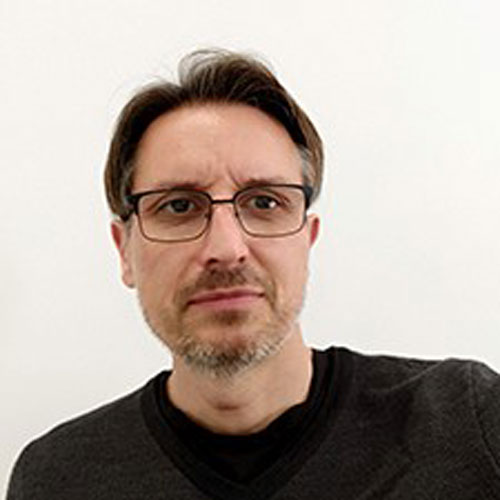
Moja praca jako zaproszonego profesora w Szkole Architektury Politechniki Krakowskiej była owocna i bardzo interesująca. Współpraca pozwoliła mi na poznanie metod dydaktycznych stosowanych na Wydziale Architektury PK. Doceniam poziom graficzny oraz zainteresowanie studentów wykładanymi przedmiotami. Chciałbym podkreślić dobre środowisko pracy i przyjazną przestrzeń do pracy w obecnym budynku Szkoły ze swoim urokiem i pełną historią.
Jeśli chodzi o temat i przedmiot proponowanych projektów, które łączą rzeczywiste lokalizacje w kontekście miejskim Krakowa i Walencji, studenci byli zaangażowani, pracując nad interesującymi propozycjami projektów. Wydaje mi się, że stosunek wykładowców do studentów jest bardzo uważny, o czym informowałem w mojej macierzystej Szkole Architektury, podkreślając poziom indywidualnej uwagi dla studentów.
Zrozumienie istotnych kwestii dla specyficznych wymagań miejsca, w którym rozwija się architektura, wymaga wcześniejszego zrozumienia idiosynkrazji i specyfiki miejsca, jego kultury, zwyczajów i historii. Za to dziękuję nauczycielom za ich przyjęcie i wkład w zrozumienie miejsca i jego wymagań. W związku z tym współpraca z nauczycielami była owocna i konstruktywna pod względem wymiany doświadczeń dydaktycznych i wiedzy o mieście, jego architekturze, tradycjach i kulturze.//My visit as invited professor to the School of Architecture of the Krakow University of Technology has been fruitful and very interesting. This collaboration has allowed me to experience the pedagogical way in which lessons and classes are developed at the university. I have been able to verify the graphic quality with which the School works and the interest of the students in the teachings taught. I would highlight the good work environment and the cosy space to work in the current School building with a certain charm and full of history. Regarding the topic and the statement of the proposed projects, that combine real locations in the urban context of Krakow and Valencia, the students have been participatory, working on interesting project proposals.
Andres Ros Campos
It seems to me that the teacher-student ratio is very reasonable, which I have communicated in my home School of Architecture intending to bring us closer to that personalised attention to the students.
Understanding the relevant issues to the specific requirements of the place in which architecture is developed, requires a prior understanding of the idiosyncrasy and particularities of the place, its culture, customs and history. For them, I thank the teachers for their welcome and their contribution to the understanding of the place and its demands. Accordingly, the collaboration with teachers has been productive and constructive in terms of exchange of teaching experiences and knowledge of the city, its architecture, traditions and culture.
Bio
Profesor Andres Ros Campos uzyskał tytuł magistra architektury w Szkole Architektury w alencji w 2001 roku. Odbył studia doktoranckie w latach 2005-2006 i uzyskał Dyplom Studiów Zaawansowanych (studia doktoranckie) w 2011 roku. Doktorat. Architekt w 2016 roku z wyróżnioną rozprawą zatytułowaną „Carlo Scarpa; Abstrakcja jako argument wzniosłości” . Pracował nad projektami związanymi z dziedzictwem architektonicznym i nowymi projektami budowlanymi. Wykłada na Uniwersytecie CEU UCH od 2002 roku jako profesor architektury w uznanych obszarach projektów architektonicznych, teorii i rysunku. Sekretarz akademicki ESET CEU UCH od 2005 do 2010 roku. Kierownik projektu zespołu CEU UCH w międzynarodowym konkursie Solar Decathlon Europe 2010. Obecnie jest międzynarodowym koordynatorem Szkoły Technicznej w CEU UCH. Zajmuje się między innymi abstrakcją w architekturze, aktualnymi relacjami między architekturą a krajobrazem, aktywacją przestrzeni miejskiej współczesnego miasta, procesem projektowania w architekturze czy postacią architekta Carlo Scarpy.
Publikacje
https://orcid.org/0000-0003-4356-4642
- Transformations of public spaces-sustainable and ethical approach to architectural and urban design using mixed cultural background
- Supporting the education of architecture students of Cracow University of Technology using international research and education programs jointly conducted by schools
- Metodología híbrida online y presencial a favor del aprendizaje cooperativo
- Activation of Contemporary Public Spaces. La Marina, Valencia
- Carlo Scarpa: La arquitectura de los sentidos; matices y significados
- Estableciendo relatos únicos entre las asignaturas propedéuticas y la adquisición de competencias en procesos creativos
- Metodología híbrida online y presencial a favor del aprendizaje cooperativo
- Heritage, concrete and symbolism in Carlo Scarpa’s architecture